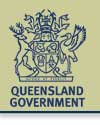Having your say
Individuals and organisations who have information relevant to the Inquiry,
or who wish to contribute to the work of the Commission, are encouraged
to come forward. Contact details for the Commission are available here.
Procedures exist to protect the confidentiality of people who
do not wish to be identified. Further information is provided here.
Factual Information
An important part of the Commission's work is to determine the true
facts surrounding incidents and events which have attracted a great
deal of publicity in the press and media over recent times. The
fact-finding process is a rigorous one.
If you have factual information relevant to the Inquiry—that is, information
based on your own knowledge, observations and experiences, rather
than mere guesswork or speculation—you can assist the Inquiry in
any of three ways:
(1) Giving evidence
If the information which you are able to provide is considered sufficiently
important, you may be called as a witness before the Inquiry. The first
step is to contact the Inquiry. In most cases,
arrangements will be made for you to be interviewed by a member of the
Inquiry team. It would be helpful—although
it is not essential—if you could supply to the Commission a letter
briefly outlining the information that you are able to supply.
(2) Furnishing a statement
The Commission fully understands that some people are uncomfortable
with the idea of giving evidence at a public sittings. In such cases,
after you contact the Commission, it may be
possible for a member of the Inquiry team to
interview you and prepare a formal sworn statement of your evidence,
which can be used in place of oral testimony.
(3) Supplying information
Without actually giving evidence—either orally at a public sittings
or in the form of a sworn statement—you may be able to help the
Inquiry by furnishing information which will assist the Inquiry’s
investigative staff: for example, names of people whom the Inquiry should
be interviewing, or documents which the Inquiry should be looking for.
Again, the starting point is to contact the Inquiry.
Submissions
Once the relevant facts have been established, the Commission’s
next task is to prepare a set of recommendations in accordance with
the Terms of Reference. In this process, the Commission
will be looking to stakeholders to supply input and guidance.
The term ‘stakeholders’ covers all groups in the community
who have a particular interest in the outcome of the Inquiry, including:
- health-care professionals, such as medical specialists,
general practitioners, nurses and others;
- people with experience in hospital and health administration;
- people who have had significant experience with relevant complaints
procedures—whether the experience was a positive or a negative
one;
- people who have had significant experience of the public
health system in Queensland, either as patients or as members
of patients' families.
In many instances, organisations or lobby groups will be best placed
to represent the interests and concerns of their members. The Commission
especially welcomes submissions from such bodies, whether they be professional
associations like the Australian Medical Association, unions like the
Queensland Nursing Union, or support groups for patients and their families.
If you are a member of such a body, you may choose to have your say through
that body; but the Commission will also be grateful for submissions from
interested individuals.
There are two ways that you can provide your input to the Commission:
(1) Written submissions
Written submissions should be sent directly to
the Commission. There is no prescribed format—a simple letter
or email setting out your viewpoint will suffice.
The Commission will accept written submissions from any individual
or organisation which wishes to express a view about any of the issues
raised in the Terms of Reference. A written
submission which is short and to the point—preferably no more than
3 pages—is likely to be more useful than one which is long and
discursive. The Commission will contact you if any further details
are required.
(2) Appearing at the Inquiry
Individuals and organisations with a direct or vested interest in the
outcome of the Inquiry may apply for leave to appear. Such leave entitles
you (subject to any conditions imposed by the Commission) to attend
at public or private sittings, to address Commission hearings, and to
examine or cross-examine witnesses. You may appear in person, through
a legal representative (a barrister or solicitor), or—in the case
of an organization—through an office-bearer or staff member.
The Commissions ‘Practice Direction’,
sets out formal and procedural requirements, which is of special
interest to any individual or organisation which is considering seeking
leave to appear.
|






